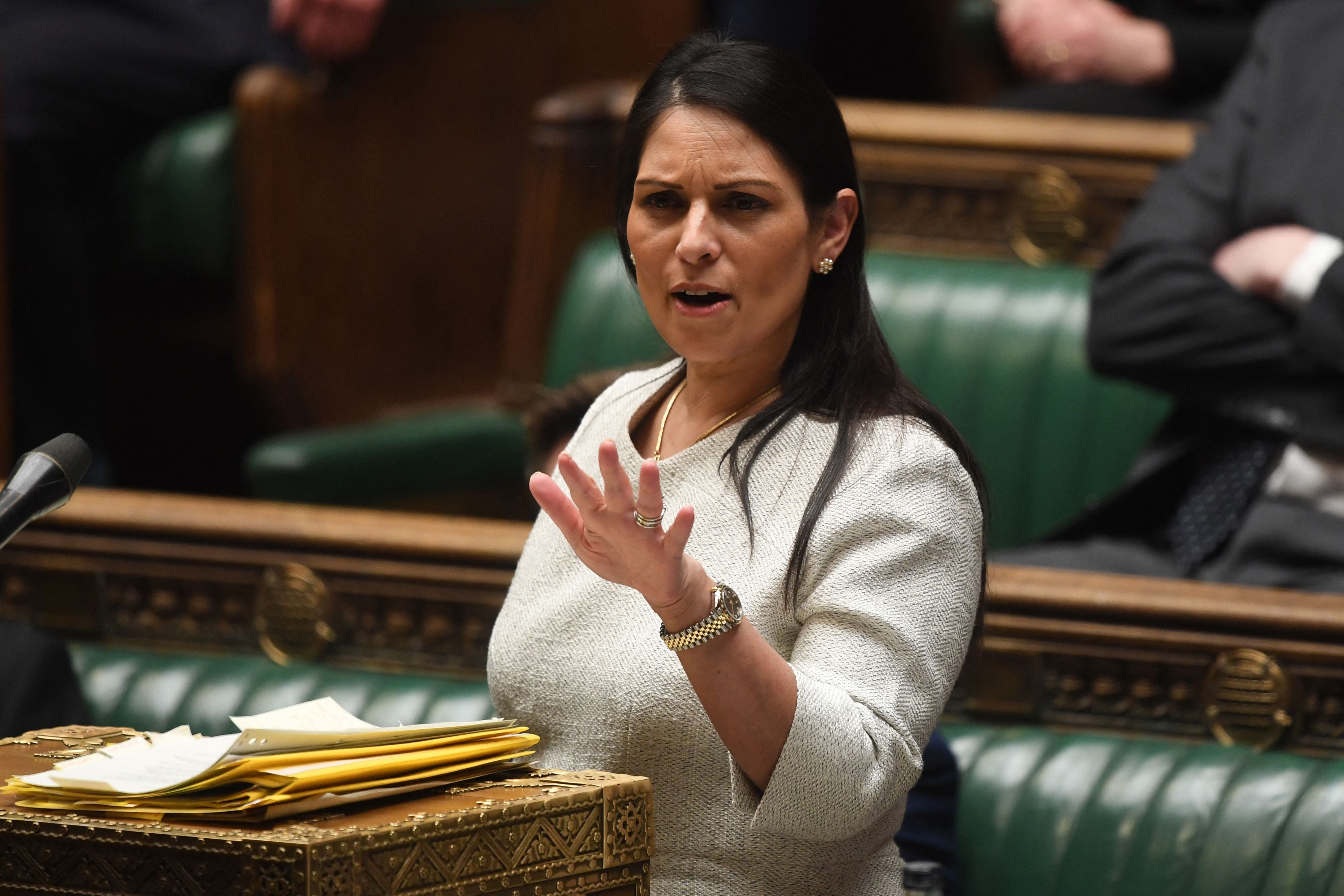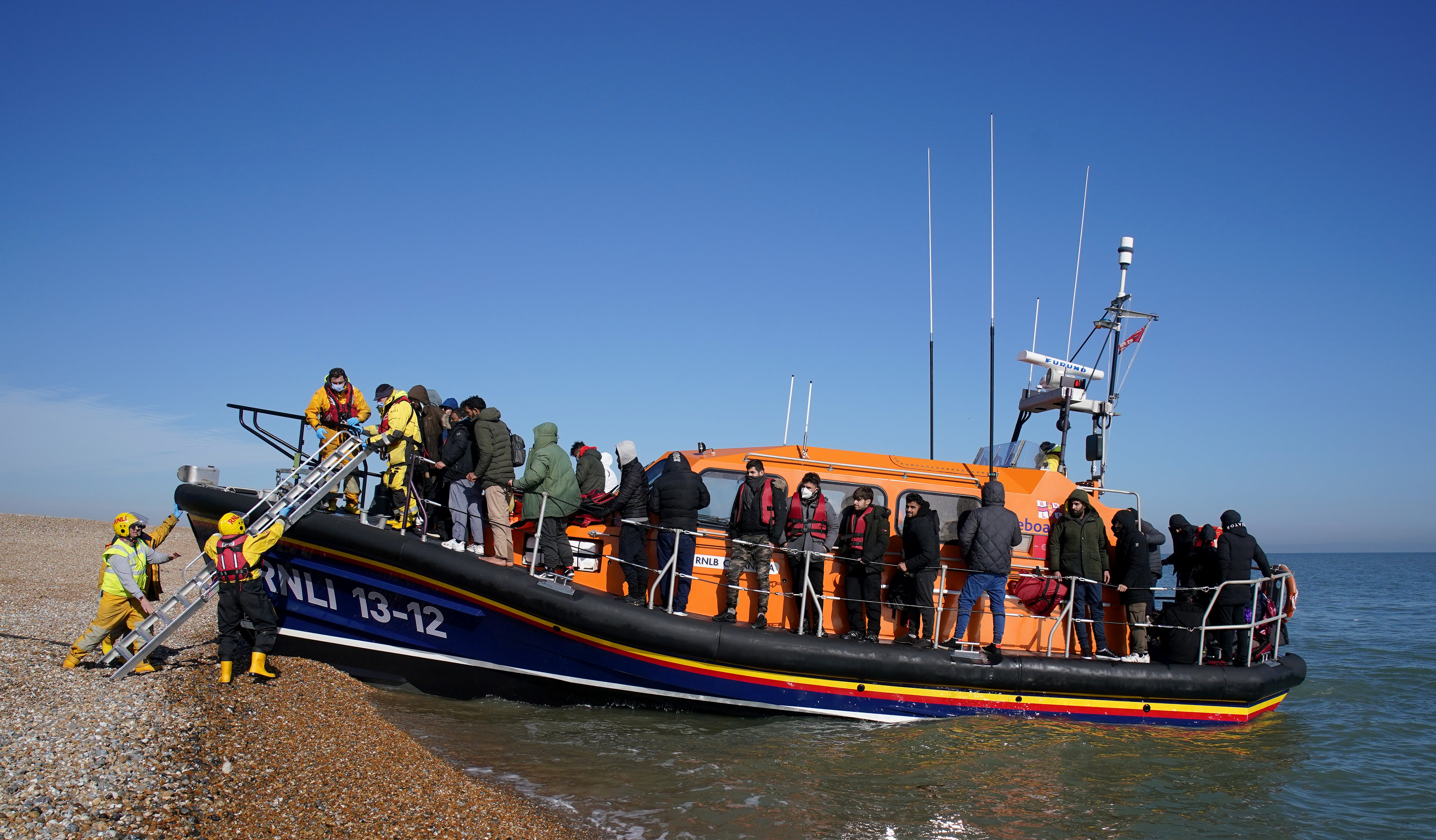
Conservative MPs have voted down a law aimed at forcing the government to put schemes like the Rwanda deal to parliament – and to disclose the costs.
The House of Lords created an amendment to the Nationality and Borders Bill that would have required MPs and peers to approve any offshoring agreements before they came into force.
The clause, which was defeated by 303 votes to 234, would also have forced the government to provide “estimated costs for at least the first two years” of operation of any proposed schemes.
Priti Patel and other ministers have repeatedly refused to give details of the cost of sending asylum seekers to Rwanda, beyond what the home secretary called “an upfront £120m development cost”.
Stephen Kinnock, Labour’s shadow immigration minister, called the plan “extortionate, unworkable and profoundly un-British”.
“There is not a shred of evidence to suggest the Rwanda plan will deter people smugglers or small boats,” he told the House of Commons on Wednesday.
“The government has lost control of asylum to the extent it is now seeking to dump its problems on a developing country 4,000 miles away.”
Sir Bob Neill, chair of the Justice Committee, suggested that, instead of investing in shipping asylum seekers to Rwanda, the government should put more money towards speeding up the application process in the UK.
He said: “A salaried immigration judge is £117,000 ... look at the £120m so far committed to the Rwanda scheme ... about 600 judges could be bought for that, or any number of Home Office caseworkers.
“Would that not be an alternative: to invest in the current system? That would be a constructive alternative.”
Government ministers have presented the Rwanda deal, and wider proposals contained within the Nationality and Borders Bill, as a vital means of tackling Channel crossings and people smugglers.
But the opposition has accused the Home Office of letting a “staggering” backlog of asylum claims build, and of creating insufficient safe and legal routes to the UK for refugees.
The House of Lords inserted amendments to the bill that would have required expanded family reunion processes for child asylum seekers in Europe, along with increased resettlement targets, but both were defeated by MPs.
Conservative MP Simon Hoare had said: “A safe route clearly would kill the evil traffic of people smuggling at a stroke; that’s one way of dealing with it.
“I fail to see how moving people to Rwanda is going to in any way disrupt this money-making scheme which these people-traffickers have. They’re just going to use different routes to land people on our shores. I’m just not getting it, I’m afraid.”

Asked by Tory MP Andrew Mitchell what safe and legal routes are available, other than the now closed route from Syria and the schemes established specifically for Afghans and Ukrainians, immigration minister Tom Pursglove said there were “various schemes” and that the UK had a “record that we can be very proud of” on resettlement.
When asked how Kurdish nationals, who make up the majority of those crossing the Channel, can get protection in Britain without making dangerous journeys, Mr Pursglove cited the UK Resettlement Scheme, which opened at the beginning of 2021 and granted protection to only 1,125 people in its first year.
He went on to say that the “biggest” safe and legal route was the UK’s skills-based immigration system, which is not intended for use by refugees.
Conservative MP Tim Loughton said the “tough” measures to tackle Channel crossings should be “tempered” with the greater availability of safe and legal routes.
Former cabinet minister Robert Buckland asked why the government would not grant asylum seekers the right to work, saying there was “simply no evidence to suggest that there is a pull factor caused by a limited right to work”.
In December, the Home Office’s own Migration Advisory Committee called on ministers to lift the ban on asylum seekers’ right to work, saying there was “clear evidence” of the “harm” the employment ban causes, and “little evidence” that it provides significant benefits.

A House of Lords amendment allowing asylum seekers a limited right to work after six months of waiting for a decision on their application was narrowly defeated by 294 to 242 votes, after several Tories rebelled.
Another amendment stating that the Nationality and Borders Bill must comply with the Refugee Convention was also defeated, after the government argued it was “unnecessary”.
The UN Refugee Agency (UNHCR), parliament’s human rights committee, and the former lord chief justice have all said that parts of the bill violate international law.
The Commons votes will now go back to the House of Lords for its consideration, as the unusually protracted “ping-pong” process continues.







